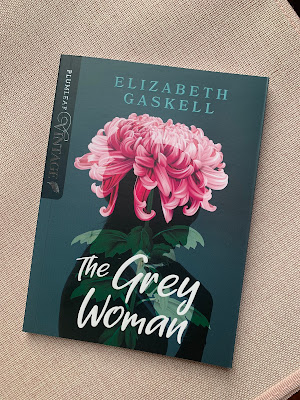One of the coolest experiences I’ve had since the release of my debut novel, Bronte’s Mistress, was when I was asked to write an introduction to Anne Bronte’s The Tenant of Wildfell Hall (1848) for a beautiful edition from Canadian publisher Plumleaf Press. The book is part of a trio of lesser-read classics by nineteenth-century women writers in the Plumleaf Vintage series, all with introductions penned by women historical novelists publishing today.
Along with Anne Bronte’s masterpiece, there’s also Lady Susan by Jane Austen (1794), with a foreword by Natalie Jenner, author of The Jane Austen Society (2020). And—I was surprised and delighted to find—completing the set is an Elizabeth Gaskell short story/novella I hadn’t read previously, The Grey Woman (1861).
Molly Greeley, whose The Clergyman’s Wife (2019) I’ve reviewed on this blog, is the introduction writer for this slight but impactful Gothic tale. Expect to find many of the tropes of the genre—a frame narrative insisting on the veracity of the story; a strange house, filled with secrets; and a vulnerable young bride, whose husband is not all he seems.
But this isn’t just a ripping yarn, or a familiar Victorian fable about the dangers of rushing into a marriage that appears too good to be true. Of most interest to me in the text was the friendship between our protagonist, Anne, and her lady’s companion, Amante. There are clear lesbian overtones to their relationship—from Amante’s name to her cross-dressing to (spoiler alert) a section where the two are cohabiting and even coparenting. The biggest disappointment of the piece is the “off-stage” conclusion of Amante’s story, though many readers will conclude what Gaskell only suggests—that Anne turns grey less from fear of her murderous husband than from grief at the loss of her female lover.
If you’re studying Gaskell and gender or looking for nineteenth-century fiction with a LGBTQ+ subtext, The Grey Woman is well-worth adding to your reading list. And for general readers? If you’re laboring under any misconception that Victorians all blushed at the sight of table legs, this novella is an entertaining antidote.
Which lesser-known nineteenth-century novel would you like me to review next? Let me know—here, on Facebook, on Instagram, or by tweeting @SVictorianist.


No comments:
Post a Comment